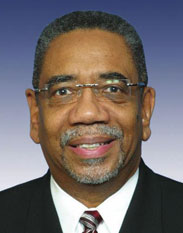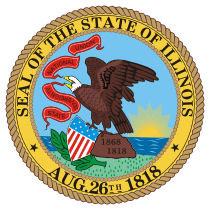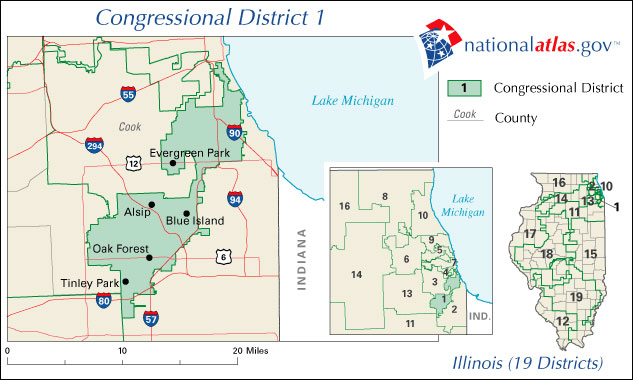 Hon. Bobby L. Rush
Hon. Bobby L. Rush
Illinois, 1st District
U.S. House of Representatives
2416 Rayburn House Office Building
Washington, D.C. 20515
Ph: 202-225-4372
Fx: 202-226-0333
www.house.gov/rush
700-706 E. 79th Street
Chicago, IL 60619
Ph: 773-224-6500
Fx: 773-224-9624
 |
3235 W. 147th St. Midlothian, IL. 60445 Ph: 708-385-9550 Fx: 708-385-3860 |
|
Chief of Staff Kimberly Parker kimberly.parker@mail.house.gov |
Legislative Director Aysha Moshi aysha.moshi@mail.house.gov |
Congressman Rush was born on November 23, 1946 in Albany, Georgia. His family later moved to Chicago and lived on the near north and west sides. Rush attended Marshall High School and at the age of 17, enlisted in the United States Army. He served in the military from 1963 until 1968, receiving an honorable discharge.

Enlarge Map
Following his military service, Rush attended Roosevelt University, where he received a bachelor's degree in general studies in 1973, with honors. In 1994, he received a master's degree in political science from the University of Illinois at Chicago. Congressman Rush received his second master's degree, in 1998, in theological studies from McCormick Seminary, and, soon thereafter, became an ordained Baptist minister.
During the Civil Rights Movement of the 1960's, Congressman Rush worked to secure basic civil and human rights for African-Americans, women and other minorities. He was a member of the Student Non-Violent Coordinating Committee (SNCC) from 1966 to 1968. Congressman Rush was a co-founder of the Illinois Black Panther Party in 1968.
While a Black Panther, he operated the Panther Party's Free Breakfast for Children program. He also coordinated the Free Medical Clinic, which developed the nation's first mass sickle cell anemia testing program. This visionary Panther initiative forced America's health care providers to recognize the impact of sickle cell anemia on the Black community and to develop national research into its causes, effects and solutions, a practice which endures to this day.
Prior to his election to Congress, Congressman Rush was an Alderman in the Chicago City Council. He represented the 2nd Ward on Chicago's South Side for 8 years. As an Alderman Rush helped pass significant environmental protection, gun control and neighborhood development legislation.
Congressman Rush received an honorary doctorate degree from the Virginia University of Lynchburg. He is the pastor of Beloved Community Christian Church and has been married to his wife, Carolyn, for 25 years.
When you think of singular national leaders, U. S. Representative Bobby L. Rush is a unique voice in the U.S. House of Representatives.
Since his election on November 3, 1992, to the U.S. Congress, representing the First Congressional District of Illinois, his political effectiveness has been recognized by the Democratic leadership, his congressional colleagues and most importantly, by his congressional constituents.
This is Congressman Rush's eighth term in the U.S. Congress.
U.S. Rep. Rush is chairman of the Committee on Energy and Commerce Subcommittee on Commerce, Trade, and Consumer Protection. He also serves on the Subcommittee on Telecommunications and the Internet. Congressman Rush is also a co-chairman of the Congressional Biotech Caucus.
Throughout his Congressional career, Congressman Rush's leadership has been recognized and rewarded. As a freshman lawmaker, the Democratic leadership appointed Rush to serve as part of the whip organization, a position he still holds. He was also elected class president for two terms by his Democratic colleagues in the class of 1992.
Congressman Rush has taken the lead on a wide range of issues affecting the First Congressional District of Illinois and the nation. In the 108th Congress, Rep. Rush authored the bill, H.R. 846, which provides for research on and services for individuals with postpartum depression and psychosis. The bill was named for Chicago-native, Mrs. Melanie Blocker-Stokes. A significant milestone was made on September 29, 2004, when a congressional hearing was held to hear expert testimony as well as a personal account of postpartum depression by the mother of Blocker-Stokes.
On August 9, 2004, Congress passed Rep. Rush's bill to re-designate two facilities of the U.S. Postal Service in the First Congressional District as the "James E. Worsham Post Office" and the "James E. Worsham Carrier Annex Building," respectively.
On November 12, 1999, President Clinton signed Cong. Rush's bill, the Nursing Relief for Disadvantaged Areas Act of '99, into Public Law. The law, temporarily addressed the nursing shortage by providing non immigrant visas for qualified foreign nurses, in the Englewood area of Chicago.
On October 17, 2000, Congress passed the Urban Asthma Reduction Act, 1999. This bill incorporated parts of Cong. Rush's original bill into the Children's Health Act of 2000, which eventually became Public Law No: 106-310. This law amends the Preventive Health & Health Services Block Grant program and includes an integrated approach to vermin management.
Early in his first term, Cong. Rush enjoyed unparalleled success when President Clinton signed into law "The Community Development and Regulatory Act," a landmark community banking bill that was based largely on a plan Rush first introduced in the U.S. Congress.
Always keeping his constituents' issues in mind, Congressman Rush initiated the Chicago Partnership for the Earned Income Tax Credit, an on-going program designed to help thousands of low-income, working Chicagoans receive federal tax credits.
Cong. Rush has brought close to $2 billion of federal funding to the First Congressional District of Illinois since his election. Recently, he announced a $1 million federal grant from the U.S. Office of Naval Research. This grant will help to develop easier and faster ways to assess the presence of chemical and biological agents. It was awarded to the Illinois Institute of Technology. This new research grant will be key to a stronger homeland security and to the safety of U.S. troops all over the world.
Source: U.S. House of Representatives
The 1st Congressional District covers most of Chicago’s Black South Side communities. The district includes many of the city’s first Black neighborhoods and includes the campus of the University of Chicago. Its poverty rate is 19.7 percent and it has a median income of $37,000. Blacks represent 65 percent of the district.













